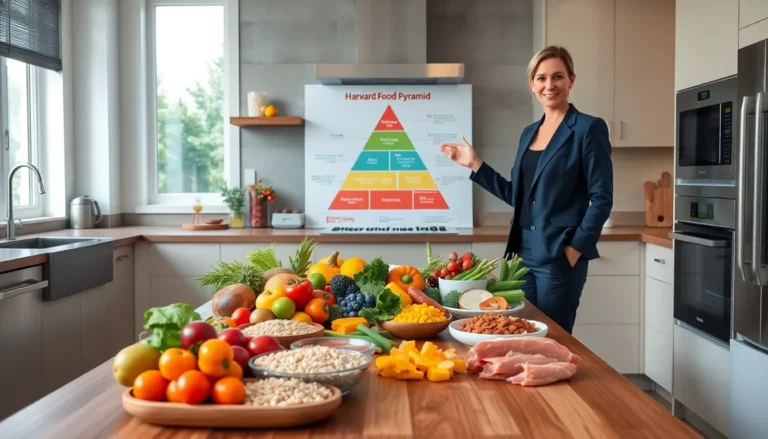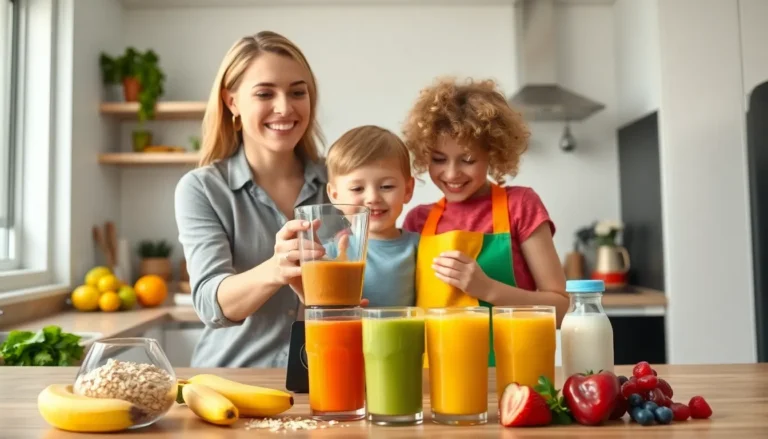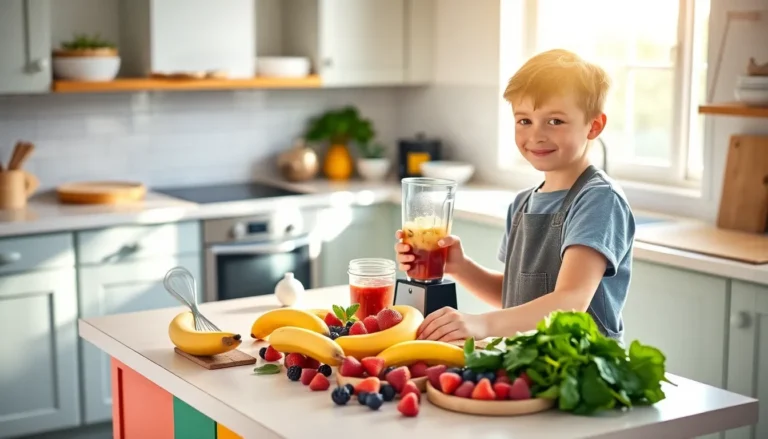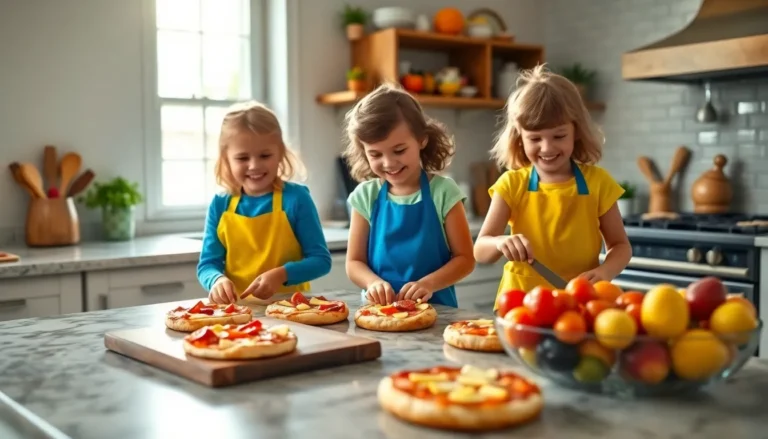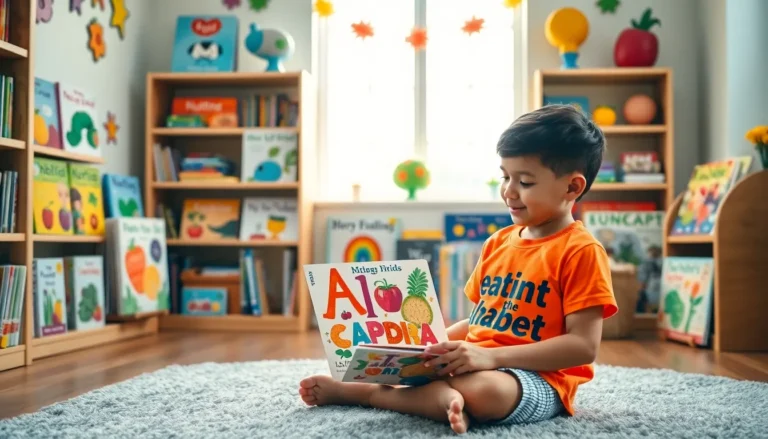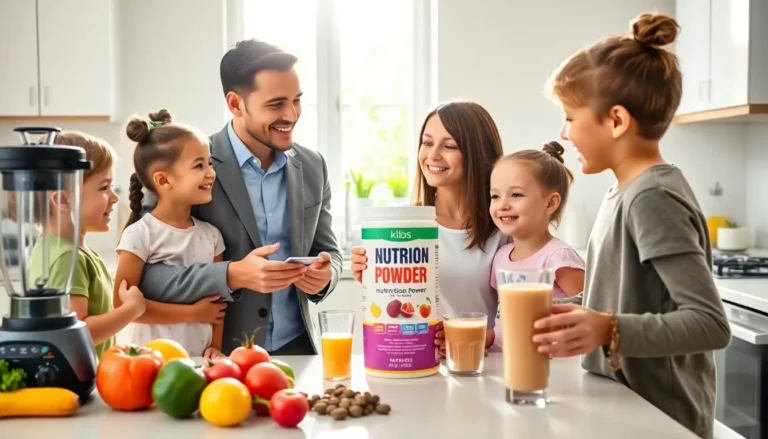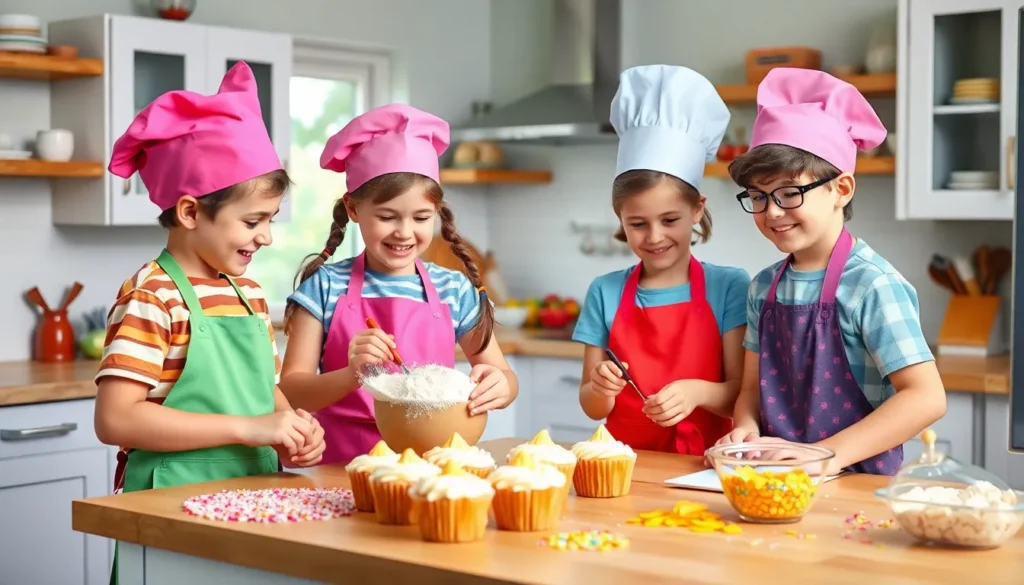Table of Contents
ToggleImagine a kitchen bustling with laughter, tiny hands covered in flour, and the sweet aroma of freshly baked cookies wafting through the air. Cooking parties for kids are more than just a fun activity; they’re a recipe for unforgettable memories. These culinary adventures not only ignite creativity but also teach valuable skills that last a lifetime.
Overview of Cooking Parties for Kids
Cooking parties for kids offer a unique blend of fun, learning, and creativity. Kids engage in hands-on culinary activities, which encourages teamwork. Participants often prepare simple recipes that promote confidence in the kitchen.
These events can take place at home or in dedicated cooking venues, offering flexibility for parents. Safety measures, such as adult supervision, enhance the experience and provide peace of mind. Cooking parties typically accommodate various age groups, ensuring a welcoming environment for everyone.
Participants learn essential skills while enjoying the process. Skills such as measuring ingredients, following instructions, and food presentation all come into play. Children also explore new ingredients and cuisines, broadening their culinary horizons.
Some parties focus on specific themes, like pizza-making, cupcake decorating, or healthy snacks. Themed parties add excitement and provide engaging content that motivates children to participate.
Group dynamics play a significant role in these events. Social interactions foster friendships and encourage communication. Cooking parties often conclude with a shared meal, allowing everyone to enjoy their creations together.
These experiences support cognitive development through problem-solving and decision-making. Setting up stations for different tasks keeps kids engaged and active throughout the process. Cooking parties cultivate a positive attitude towards food and nutrition.
Overall, cooking parties for kids combine educational elements with flavor and fun, creating an unforgettable experience.
Benefits of Cooking Parties
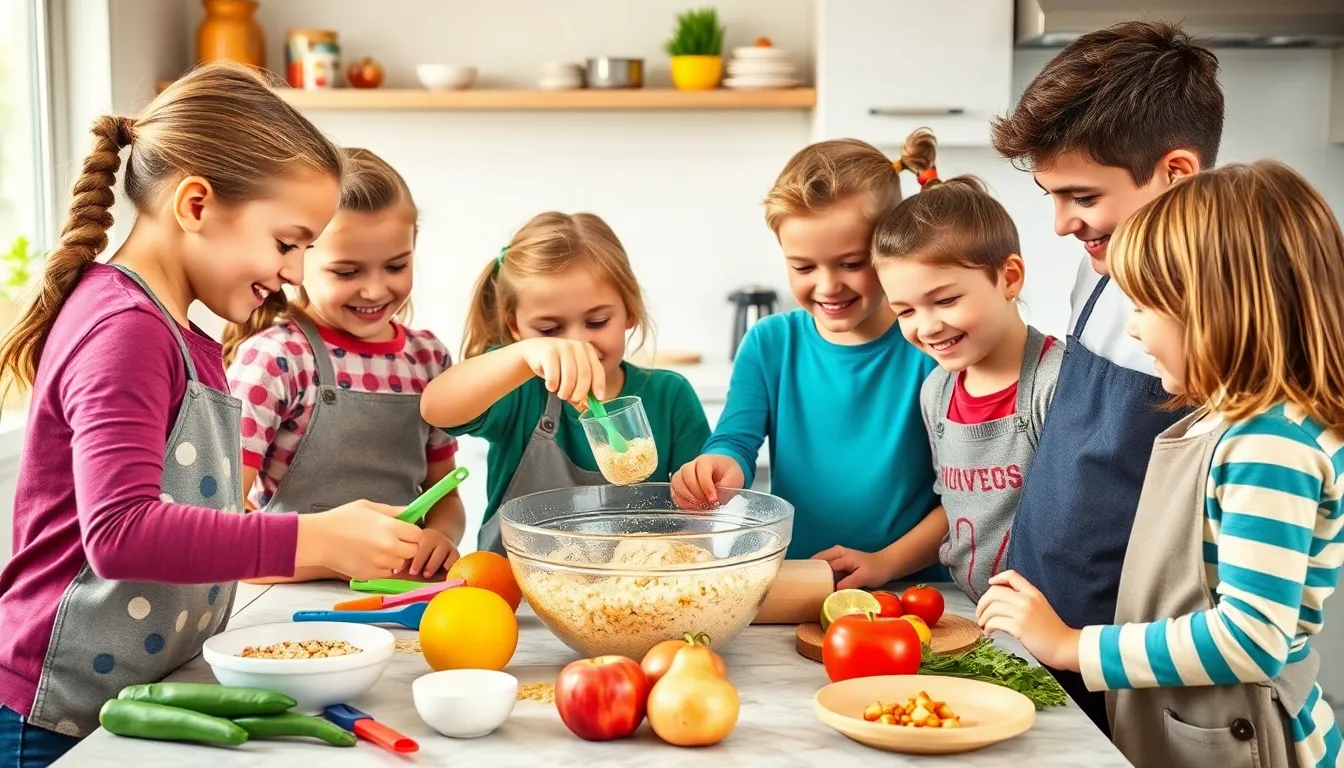
Cooking parties for kids offer numerous advantages that extend beyond just fun and creativity. They provide opportunities for learning practical skills in the kitchen, helping children develop essential life competencies.
Educational Aspects
Cooking parties introduce children to basic culinary skills. They learn how to measure ingredients accurately, follow recipes, and practice safe food handling. Problem-solving comes into play when they encounter cooking challenges, like adjusting recipes for taste and texture. Understanding different cuisines exposes kids to diverse cultures, enhancing their appreciation for food. Participants also build math skills through measuring and fractions. Engaging with various ingredients expands their vocabulary, turning each cooking session into a mini-classroom.
Social Skills Development
Cooking parties promote teamwork among participants. Working together on recipes fosters collaboration and communication. Children learn to share tasks and depend on each other’s strengths. These social interactions enhance friendships as kids bond over shared experiences. They also practice manners while dining together, reinforcing the importance of respect and gratitude. Conflict resolution skills may surface when disagreements on cooking techniques arise, teaching kids how to negotiate. Overall, these events create a supportive environment where social skills flourish through shared achievements.
Planning a Successful Cooking Party
Successful cooking parties for kids rely on thoughtful planning and attention to detail. A well-organized event ensures fun, safety, and memorable experiences.
Choosing the Right Theme
Selecting an engaging theme sets the tone for the party. Options include pizza-making, cupcake decorating, or an international cuisine exploration. Popular themes spark creativity and enthusiasm. Consider the children’s preferences to drive excitement. Specific food projects provide clarity and enhance participation. Planning ahead ensures the necessary ingredients and equipment are available. Decorations, music, and activities aligned with the theme enhance the overall experience. Integrating educational elements helps children connect with the theme while learning valuable skills.
Safety Considerations
Safety must take precedence during cooking parties. Adult supervision is essential to monitor activities and provide assistance. Check for food allergies before planning the menu. Using age-appropriate tools prevents accidents and injuries. Ensure children understand safety protocols, like proper knife handling and hygiene practices. Providing handwashing stations promotes cleanliness and reduces health risks. Setting clear boundaries in the cooking space keeps the environment organized. Quick access to first aid kits addresses any minor injuries. Prioritizing safety creates a fun and secure atmosphere for all participants.
Popular Recipes for Kids’ Cooking Parties
Cooking parties for kids thrive on fun and creativity. Recipes designed for these events inspire young chefs to explore new flavors while learning essential skills.
Fun Appetizers
Mini pizzas captivate young taste buds with their customizable toppings. Kids can spread sauce and sprinkle cheese, fostering hands-on culinary experiences. Vegetable skewers offer another flavorful option, promoting healthier eating habits. Using colorful vegetables can encourage kids to try new foods. Cheese and cracker platters provide an easy-to-assemble snack that supports coordination skills. These appetizers allow children to engage and collaborate, setting a lively tone for the party.
Creative Desserts
Cupcake decorating serves as a popular activity, where kids unleash their creativity. They select vibrant frosting colors, sprinkles, and edible decorations. Fruit kabobs combine sweetness and nutrition, encouraging children to enjoy fresh produce. Chocolate-dipped treats add an exciting twist, allowing kids to customize their favorites. Cookie decorating creates opportunities for artistic expression, enabling children to personalize their confections. Each dessert idea promotes a sense of accomplishment and makes the cooking party memorable.
Cooking parties for kids offer a delightful way to inspire creativity and foster essential life skills. By engaging in hands-on culinary experiences, children not only learn to cook but also build confidence and teamwork. The excitement of themed activities adds an extra layer of fun while promoting social interactions and cultural appreciation.
With careful planning and safety measures in place, these events can create lasting memories. From measuring ingredients to celebrating their culinary creations, kids gain valuable knowledge that extends beyond the kitchen. Cooking parties cultivate a love for food and empower young chefs to explore their culinary potential.

